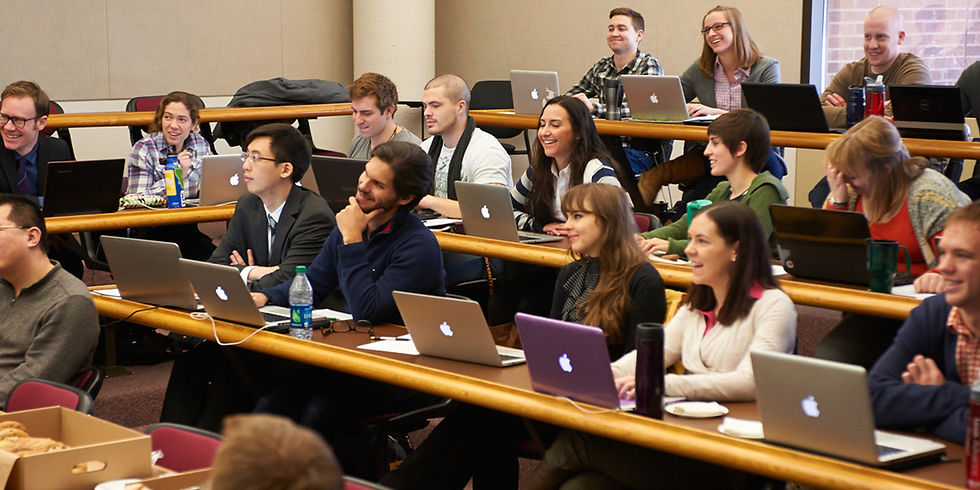Are MBA Programs Skewing Toward A Younger Intake? Not Necessarily!
- MR. MBA®, Val Misra

- Mar 5, 2019
- 3 min read
Updated: Oct 26, 2022
*March 5 2019*

Top flight MBA programs around the world generally require applicants to have finished their undergrad education and have gained a few years of work experience and wisdom both in the workforce and in the real world outside of class. Why? So that incoming students have real world knowledge, possess lessons learned of achievements and failures, and they can bring value added opinions that they can share in their MBA classes with their professors and fellow peers. This criteria is therefore quite vital to any MBA Admission Committee as they begin selecting students from different countries, industries, future career preferences and general world outlook. The job of any MBA Admissions Committee is to create a canvas of students that best represents their MBA brand and can contribute to the MBA brand's future evolution and growth.
The average number of years of work experience post undergrad for any incoming MBA student is typically 3-5 years, with their generally being a minimum of 1 year. However this is not set in stone and there are of course exceptions.
In general, consultants and financiers tend to have 2-3 years of post undergrad work experience, while the entrepreneurs and non-profit folk tend to skew higher.
So why are some MBA programs skewing younger? Well, MBA programs are not necessarily skewing younger, but instead having dedicated undergrad students, within that university, who seek an MBA in the future to apply during their senior year of undergrad for a place in a future MBA class with their university (e.g. a student at Harvard University undergrad would apply in his senior year to Harvard Business School for a future seat after completing 2 years of work experience- this is HBS' 2+2 program for college students). So in effect, the undergrad students still have to gain the needed work experience but are semi-committed to the MBA program within their university they have applied to. This strategy not only gives the college students future direction but also sets the tone for future MBA programs as Admission Committees have a stronger sense of numbers for future classes.
Which B-Schools offer this option for undergrads to apply to B-Schools for a future spot?
- Harvard Business School - College Students 2+2 Program
- Stanford Graduate School of Business - Deferred Enrollment Program
- UPenn Wharton School of Business - Moelis Advance Access Program
- MIT Sloan School of Management - Early Admission Program
- UChicago Booth School of Business - Scholars Program
- Columbia Graduate School of Business - Deferred Enrollment Program
- Yale School of Management - Silver Scholars Program
- UVA Darden School of Business - Future Year Scholars Program
*with the arrival of new Dean Francesca Cornelli at Northwestern University's Kellogg School of Management, Kellogg might move to this strategy and add its name to this list in the future (currently there is no Northwestern University undergrad link to Northwestern Kellogg Business)
In my humble opinion, I think incoming MBA students to any top flight program should have a minimum of 2 years work experience, with the more work experience the better. It is work experience and the ability to draw on past accomplishments / failures / lessons that really invigorates classroom discussions and can make students really shine in class. MBA students with tenured work experience are able to connect the dots between their business case studies and past experiences to draw logical and even emotional insights and plausible conclusions. I am not saying that work experience post undergrad college is everything! There are certainly students who have worked throughout their undergrad colleges in meaningful positions and have gained significant knowledge, wisdom and lessons learned. For such students, applying early to a deferred enrollment program at their university business school is apt. What I am saying is that work experience is vital to any top flight MBA Admissions Committee, the MBA classroom, MBA clubs & organizations, professors, peers and even companies who recruit on campus.




Comments